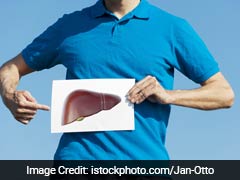Early signs of cirrhosis can often go unnoticed, recognising these signs early is critical, as timely intervention can slow or even halt the progression of the disease.

Cirrhosis can be prevented through healthy lifestyle choices like avoiding alcohol abuse
Liver cirrhosis is a chronic and progressive condition where the healthy tissue of the liver is gradually replaced by scar tissue (fibrosis), which blocks the flow of blood through the liver and severely impairs its vital functions, such as detoxifying the body, producing proteins, and aiding digestion. This scarring is most commonly caused by long-term liver damage due to excessive alcohol use, chronic viral hepatitis (especially hepatitis B and C), non-alcoholic fatty liver disease, or prolonged exposure to toxins and medications. Early signs of cirrhosis can often go unnoticed, recognising these signs early is critical, as timely intervention can slow or even halt the progression of the disease. Read on as we share early signs of LC and tips to prevent it.
10 Early signs of liver cirrhosis
1. Persistent fatigue
One of the earliest and most common signs, fatigue occurs due to the liver's decreased ability to detoxify the blood and regulate energy production, making a person feel constantly tired and drained.
2. Loss of appetite
As liver function declines, digestion becomes less efficient, leading to a poor appetite and a reduced interest in food, which can contribute to weight loss and malnutrition.
3. Nausea or vomiting
Toxins that the liver normally filters begin to accumulate in the body, often leading to persistent nausea or occasional vomiting.
4. Abdominal discomfort or pain
The liver is located in the upper right quadrant of the abdomen, and as it becomes inflamed or enlarged, it can cause dull or sharp discomfort in that area.
5. Itchy skin
Bile salts that build up under the skin due to impaired liver function can cause intense itching, even in the absence of visible skin issues like rashes.
6. Yellowing of skin or eyes
When the liver cannot properly process bilirubin, it accumulates in the body, causing a yellow discolouration of the eyes and skin, one of the most noticeable signs of liver trouble.
7. Swelling in the legs or abdomen
Poor liver function can cause fluid retention, resulting in swollen legs, feet, or a bloated abdomen due to fluid buildup (ascites).
8. Unexplained weight loss
A combination of poor appetite, digestion problems, and muscle loss can lead to significant weight loss without any intentional effort.
9. Easy bruising and bleeding
The liver produces proteins responsible for blood clotting. When it's damaged, clotting factors decrease, causing a person to bruise easily or bleed more than usual from minor injuries.
10. Dark urine and pale stools
Disruption in bile production and processing can cause urine to appear dark and stools to lose their normal brown colour, becoming pale or clay-coloured.
Tips to prevent liver cirrhosis
1. Limit or avoid alcohol consumption
2. Maintain a healthy weight
3. Eat a balanced, liver-friendly diet
4. Get vaccinated against hepatitis a and b
5. Practice safe hygiene and safe sex
6. Avoid unnecessary medications and toxins
7. Stay hydrated
8. Regular medical checkups and liver function tests
9. Manage chronic conditions like diabetes and high cholesterol
Cirrhosis can be prevented through healthy lifestyle choices like avoiding alcohol abuse, maintaining a healthy weight, managing chronic conditions
Disclaimer: This content including advice provides generic information only. It is in no way a substitute for a qualified medical opinion. Always consult a specialist or your own doctor for more information. NDTV does not claim responsibility for this information.
DoctorNDTV is the one stop site for all your health needs providing the most credible health information, health news and tips with expert advice on healthy living, diet plans, informative videos etc. You can get the most relevant and accurate info you need about health problems like diabetes, cancer, pregnancy, HIV and AIDS, weight loss and many other lifestyle diseases. We have a panel of over 350 experts who help us develop content by giving their valuable inputs and bringing to us the latest in the world of healthcare.














